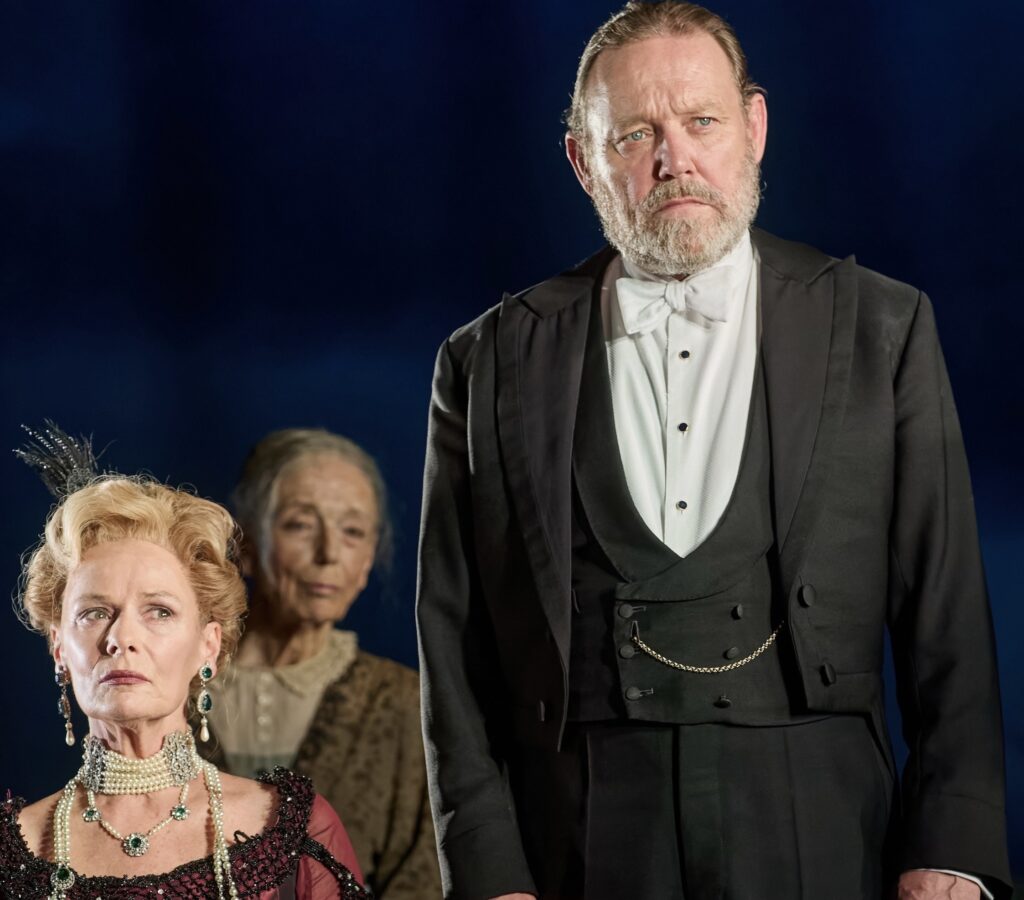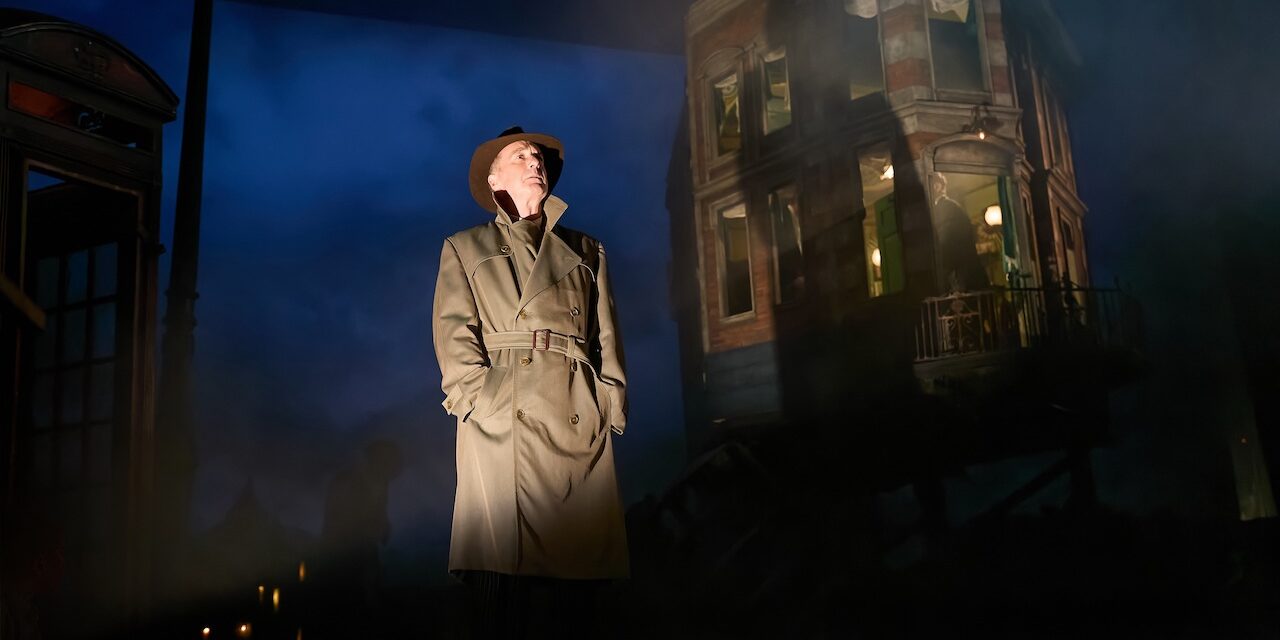
16 – 20 May
J.B.Priestley, who for a period had a soft spot for matters involving time having produced three other plays which were known collectively as The Time Plays, would no doubt have approved of Stephen Daldry’s National Theatre production which has been rebooted for the current tour.
Daldry’s offering of Priestley’s timeless drama is an exercise in teaching an old dog new tricks. ‘Timeless’ here takes on added meaning as the production is set in no particular time, being rather a kind of mash-up between Edwardian, and war-time England of the nineteen forties. Added to which the play deals with timeless issues. The play resembles a kind of static courtroom drama set in an Edwardian dining-room in which the Birling family, comfortable and heartless, stand in as placeholders for a certain strata of Edwardian society. Stephen Daldry has dragged the action out into the street where the family’s dirty secrets are exposed to public view.
Before Margaret Thatcher even thought of the slogan ‘There’s no such thing as society’, which was received with approval by the ideological descendants of the Birlings, Priestley had got in his powerful retort first. This is a play about the connectedness of society and the responsibilities we have to our fellow citizens.
The play is notable in that the star, the dead girl who has been driven to suicide by the collective indifference of the Birling family, never appears, but what is more remarkable about this production is that the set becomes an actor. Any slight hints of melodrama are heightened by the enlistment of Ian MacNeil’s ‘living’ set, which undergoes a kind of paroxysm at the revelations which unfold.
Liam Brennan’s Inspector barks out a series of hammer blows to the Birling’s self-satisfaction and social complacency. His doom-laden delivery lets nobody off the hook, including the audience who are only just out of Priestley’s field of fire, but well within range.
The set is a street showing the corner of the Birling’s residence, a kind of dolls house whose undersized door and windows undermines the protagonists’ pretensions to respectability and which, like their ideological complacency, disintegrates as the play reveals the way in which the family corrupts and ultimately destroys an innocent girl who wants nothing more than a fair wage.
The one spark of conscience in the family comes from the two younger members Eric (George Rowlands) and particularly Sheila (Chloe Orrock) whose own moral compass is stirred by personal shame and indignation at her family’s complicity in the girl’s death. The characters of the play, as Priestley sees them, are merely types thrown up by capitalism, but nevertheless are given rounded treatment by the strong cast.
This powerful play is as relevant today as ever and sadly is unlikely to be any less so any time soon.
★★★★☆ Graham Wyles, 17 May 2023
Photo credit: Mark Douet


